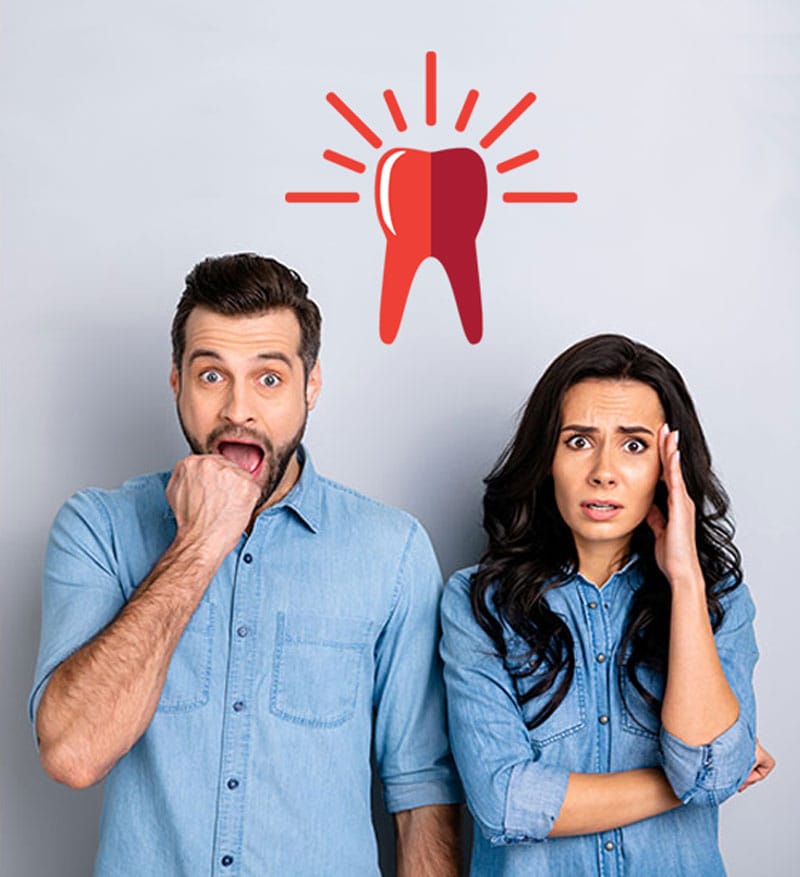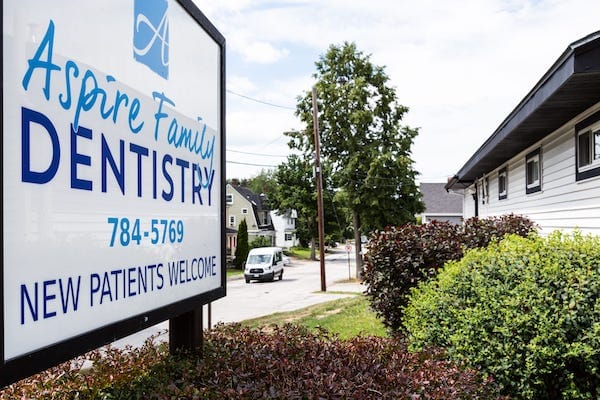“Dental Emergency” can be a bit of a vague term for some. As emergency dentists, we want to make sure patients know what constitutes a dental emergency and what you should do when an emergency happens. Some dental issues require you to make an immediate appointment while some require you to make an appointment in the near future. Regardless, the worst thing you can do is not call a dentist when you are experiencing a dental emergency.
What Constitutes a Dental Emergency
A dental emergency can be defined as any dental issue that requires immediate attention. Any emergency that is life-threatening should be handled by doctors at an emergency room. For instance, if there is a risk of blood loss, broken bones, an individual has lost consciousness, or another life-threatening scenario, 911 should be called. Dental emergencies, on the other hand do not present life-threatening circumstances but still require immediate attention. This could include a tooth being knocked out, a dental crown breaking, or any trauma to the mouth that damages the teeth. Here are a few factors to consider:
- Blood: If there is blood, this may be a sign of a dental emergency. You will want to use gauze or a clean washcloth to stop the flow of blood while on the way to the dentist.
- Pain: If you are experiencing severe pain, you should consider calling an emergency dentist. Painkillers may be taken to alleviate the pain temporarily but a dentist can identify the issue.
- Teeth: If one of your adult teeth is loose, this is a sign of a dental issue. Or if any tooth is broken, chipped, or cracked due to an injury you should call a dentist.
- Infection: If you have an infection in the mouth that includes swelling, bleeding or other symptoms, you should see a dentist right away. Infections can be signs of severe tooth decay or gum disease and can lead to worse health risks.
Is a Toothache a Dental Emergency?
It depends on the severity of the toothache. Regardless, if you have pain in your teeth you should contact a dentist. Don’t wait for your next regular check-up to see a dentist. Even a minor toothache could be a sign of a cavity or tooth decay. And because tooth decay spreads over time, it is always recommended that you see a dentist sooner rather than later. If the pain is manageable and does not impede your ability to eat and brush your teeth, you may be able to wait longer to see a dentist, but you should still make it a priority. Any toothache that is severe or makes it hard to chew or brush your teeth should be handled quickly.
What Isn't A Dental Emergency?
Some problems do not need to be handled the day of. If you can wait a few days to see a doctor it is likely not a dental emergency. For instance, a cracked or chipped tooth is an emergency if it causes severe pain or has left a sharp surface that could damage the inside of your mouth. But if the chipped tooth is not painful and not causing damage, you can potentially wait to see the dentist. If you lose a dental crown or a filling, you may be able to wait a few days before you see your dentist, but you will need to take extra care when eating and brushing your teeth.
Call Our Office in Lewiston
If you are experiencing a dental emergency do not wait to call our office. Even if you aren’t experiencing a dental emergency, we would be happy to help you with any of your other dental needs, contact our office to set up an appointment for your family.


